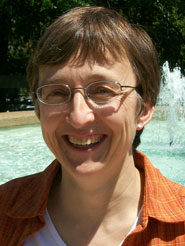DySoC/NIMBioS Seminar Series
DySoC and NIMBioS are hosting a series of seminars on topics related to social complexity. Monthly seminars will be held at NIMBioS in Room 206, Claxton Building, 1122 Volunteer Blvd. Light refreshments will be served in Room 205 beginning 30 minutes before each talk. Faculty and students from across the UT community are welcome to join us.
Speaker: Dr. Aleydis Van de Moortel, Classics, Univ. of Tennessee, Knoxville; Center for the Dynamics of Social Complexity (DySoC)
Time/Date: Monday, November 12, 2018, 3:30*
Location: Room 206, Claxton Building, 1122 Volunteer Blvd.
Topic: Understanding the rise and decline of complex society at prehistoric Mitrou, Greece, through practice theory and human agency
Abstract:
The 2004-2008 archaeological excavations carried out at the prehistoric settlement of Mitrou, central Greece, by a team from UT and the Greek Archaeological Service under co-directorship of the speaker, have led to the identification of a sequence of more than 60 occupational levels, spanning a period from the Early Bronze Age to the Early Iron Age (ca. 2400 - 900 BCE). Such a long, detailed, and uninterrupted sequence is unique in Greece and makes Mitrou an ideal site for studying major societal changes. Our work is contributing to the understanding of cycles of civilization, from the Early Bronze IIB Corridor House civilization to the simpler societies of the Early Bronze III and Middle Bronze periods; the rise of a visible political elite in the early part of the Late Bronze Age; the subjugation of Mitrou by an outside (palatial) power in Late Bronze IIIA; the revival of the settlement after the fall of the Mycenaean palaces; and the reversion to a simpler society at the end of the Late Bronze Age and in the Early Iron Age.
In the absence of written records, interpretations of the dynamics of social complexity at Mitrou are based on physical remains. Practice theory and human agency have proven to be particularly fruitful venues, leading us to identify at one time a drastic change in social practices indicative of a population shift, and at other times instances when individuals subverted existing practices to construct a new ideology of power and elevate their own social status.
Aleydis Van de Moortel is the Lindsay Young Professor and Chair of the Department of Classics at the University of Tennessee. Her main research interest is the emergence and decline of complex societies in the prehistoric Aegean. She is particularly interested in the role of social practices, human agency, craft production, and maritime interconnections in periods of societal change. She received her PhD in Classical and Near Eastern Archaeology from Bryn Mawr College in 1997. Since 2004 she has co-directed the archaeological excavation and survey of the prehistoric settlement of Mitrou, where she is studying the architecture and stratigraphy for publication.
*Join us for refreshments at 3 p.m.
Seminar Flyer (pdf)
For more information about this and other NIMBioS Seminars, visit /announcements/seminars.
NIMBioS
1122 Volunteer Blvd., Suite 106
University of Tennessee
Knoxville,
TN 37996-3410
PH: (865) 974-9334
FAX: (865) 974-9461
Contact NIMBioS




